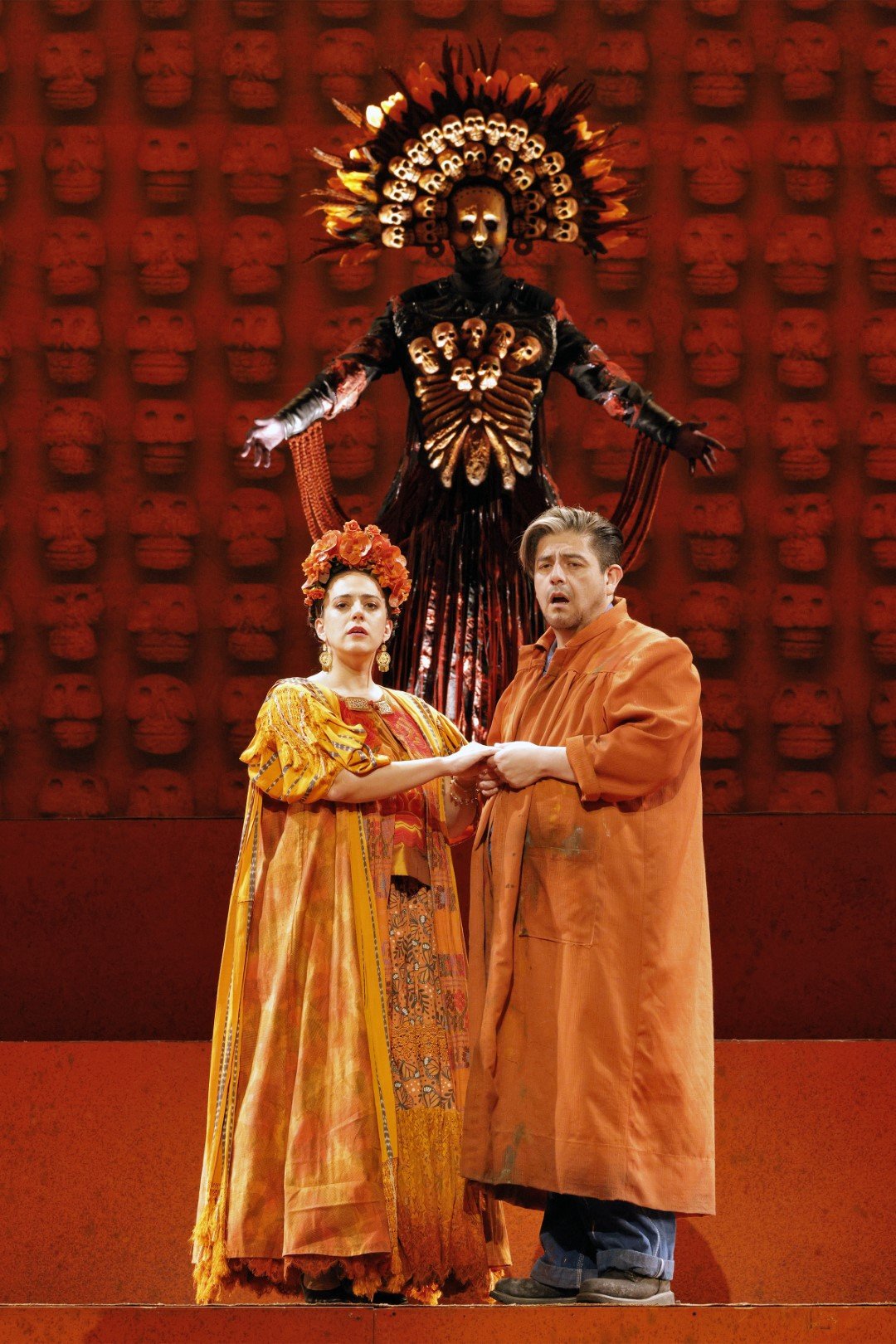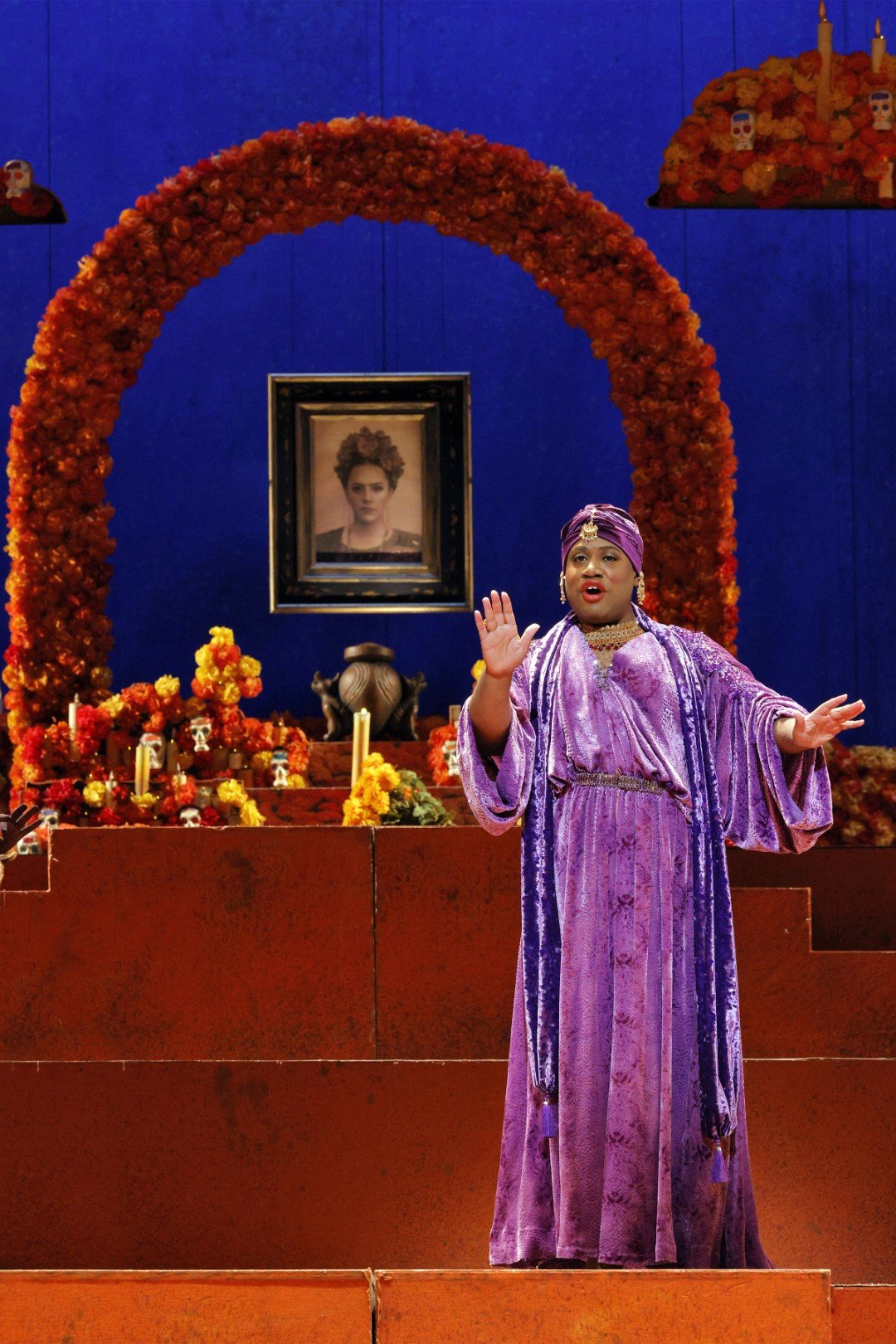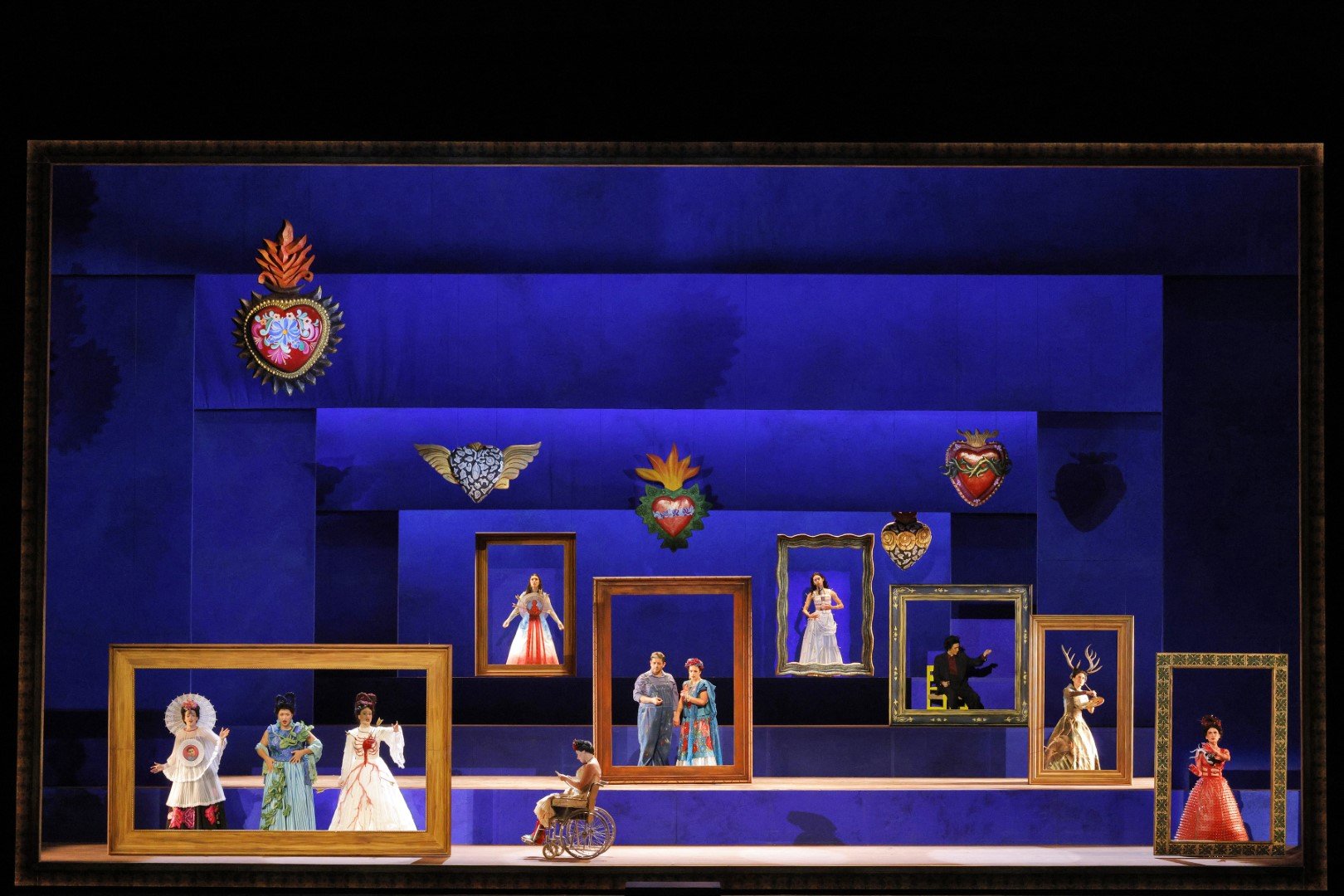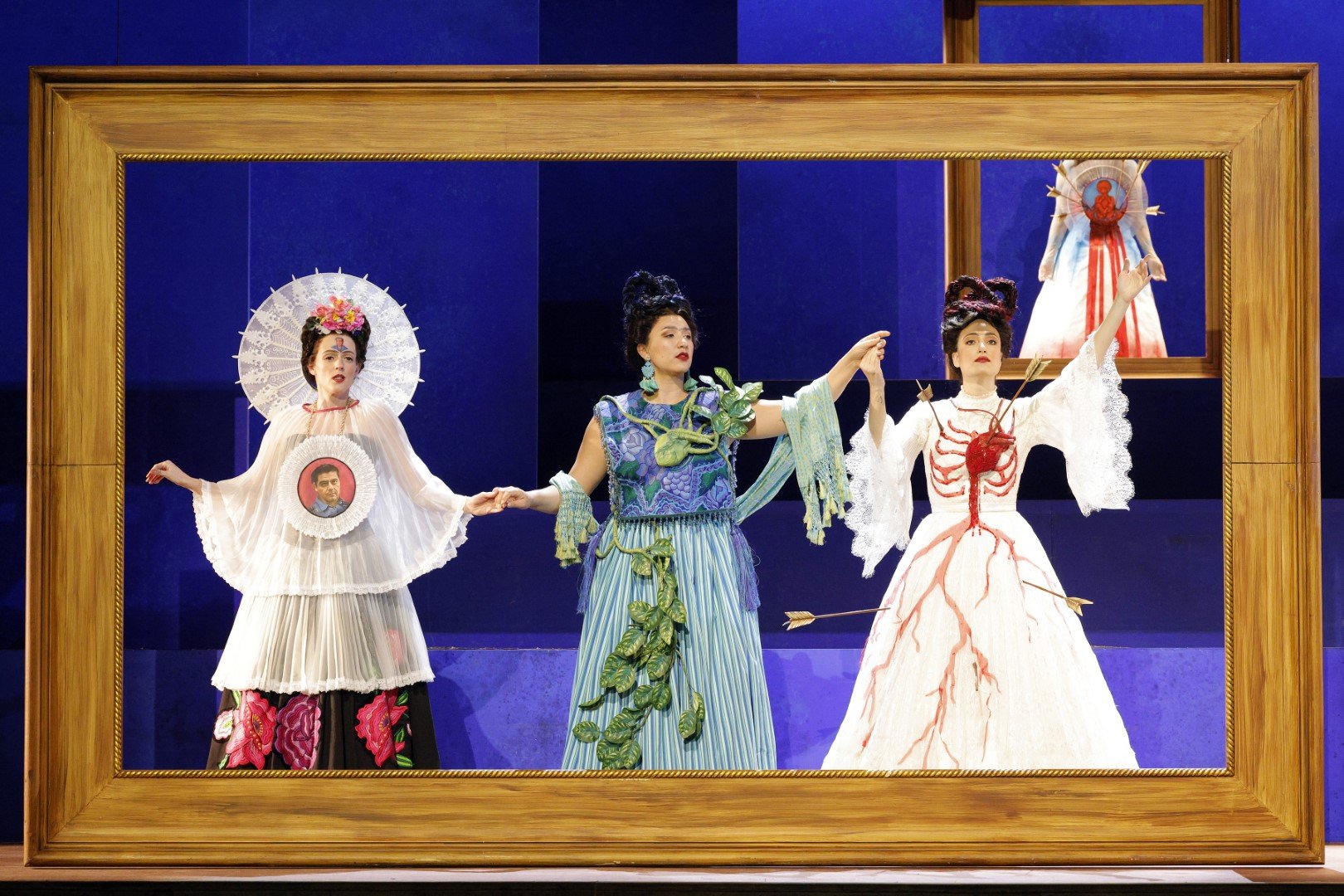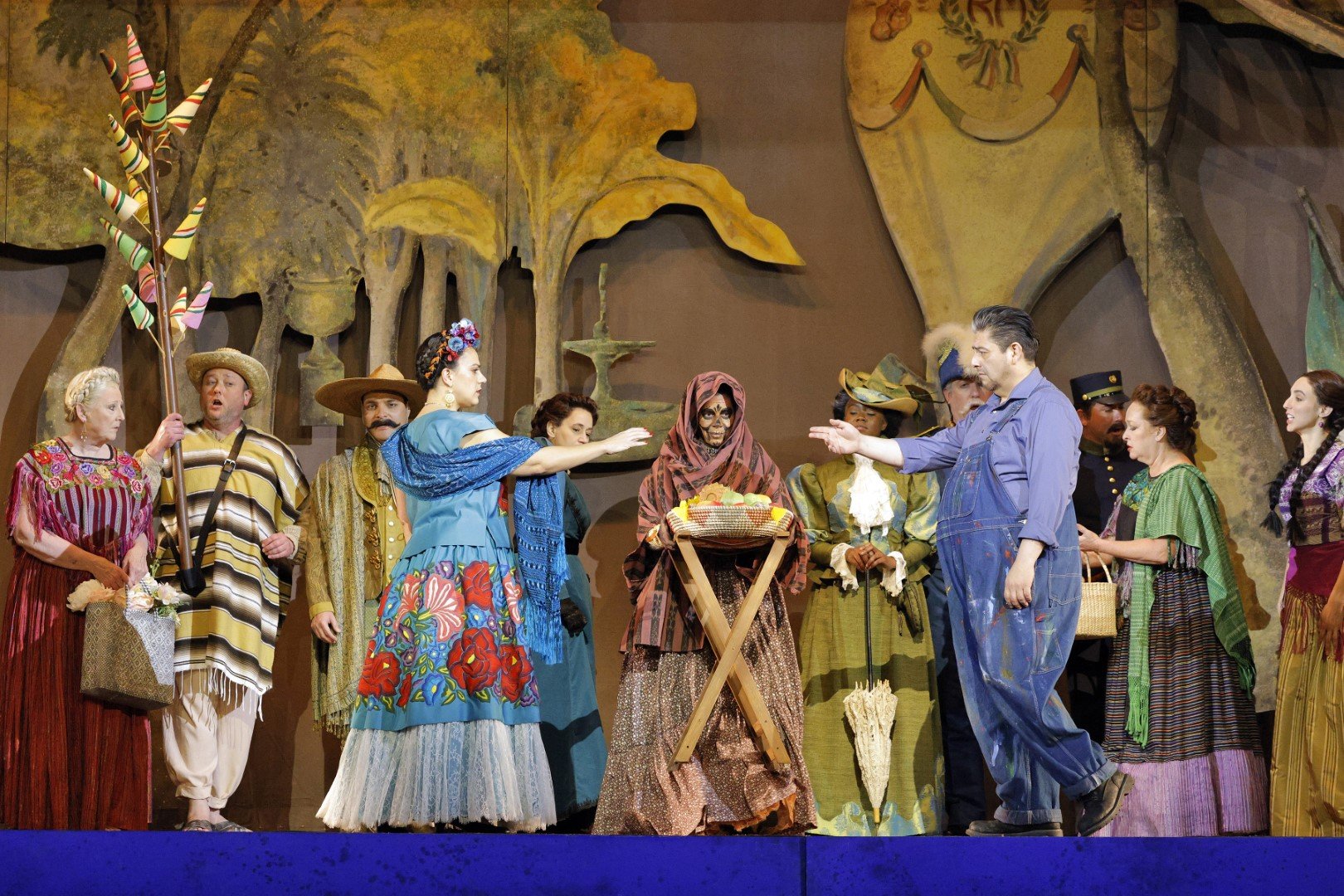'Frida and Diego' in L.A., all that glitter is not gold
/By Truman C. Wang
11/27/2023
Photo credit: Cory Weaver / LA Opera
El último sueño de Frida y Diego (The Last Dream of Frida and Diego) is the second new opera at the Dorothy Chandler Pavilion in as many years. The first one, Omar, from last November, was as entertaining as any song-and-dance Broadway hit show, despite its grim subject matter of slavery and racial injustice. The second new opera – a fictionalized supernatural yarn based on the lives and deaths of Mexican artists Diego Rivera and Frida Kahlo – has a rather peculiar libretto by Nilo Cruz that freely combines elements of Gluck’s Orpheus drama and the fantasy world of Strauss and Hoffmannsthal’s Die Frau ohne Schatten – not always successfully; the Greta Garbo subplot is more of a distraction (or rather a vehicle for the excellent countertenor Key'mon Murrah), and adds nothing to the drama.
For the complete synopsis of the opera, read here.
Equally peculiar is the music, by Grammy Award winner Gabriela Lena Frank. Unlike the music of Omar, which successfully combines Negro folklore with Western musical forms, the score of Frida y Diego is harmonically ambitious (the exotic opening chords recall Puccini’s Turandot) but melodically pallid, all characters singing more or less the same melisma lines, indistinguishable from one another except by their unique timber and dynamic range. This declamation style of singing was first invented by Gluck in 1762 for its ‘noble simplicity’, but often misused by later composers for taking it too literally, at the expense of melos, or poetry, song and dance – all essential elements of the Greek drama on which the Gluckian opera reform is modeled. Ultimately, composer Frank’s musical score pales next to the glittering, colorful, dynamic, folklore-inspired set of Jorge Ballina and visually arresting costume of Eloise Kazan. Lorena Maza’s staging, a giant picture frame flanking the proscenium, suggests art imitating life.
I attended the Sunday, November 26 matinee performance. The excellent musical team did their best to work with the meager materials they’ve got. From the podium, Lina González-Granados commanded the strong feeling for individual lines. (Her talent is better served in Italian opera.) Daniela Mack is a fine singing actress as Frida Kahlo, a pity her belcanto skills are wasted here. Alfredo Daza portrays Diego Rivera with vocal and emotional depths. Ana Maria Martinez is deliciously wicked as the underworld gate keeper Catrina (Think Pluto from the Orpheus legend but in cooler costume.) Countertenor Key'mon Murrah, as the Greta Garbo fanboy Leonardo, steals every scene he’s in with the warm, sweet tone of a true female mezzo-soprano. (David Daniels was another countertenor with this uncanny ability.)
Chorus master Jeremy Frank, the only non-Hispanic member of this whole show, should be justifiably proud of his superb L.A. Opera Chorus, who rescued many scenes from the brink of dullness.
Truman C. Wang is Editor-in-Chief of Classical Voice, whose articles have appeared in the Pasadena Star-News, San Gabriel Valley Tribune, other Southern California publications, as well as the Hawaiian Chinese Daily. He studied Integrative Biology and Music at U.C. Berkeley.


